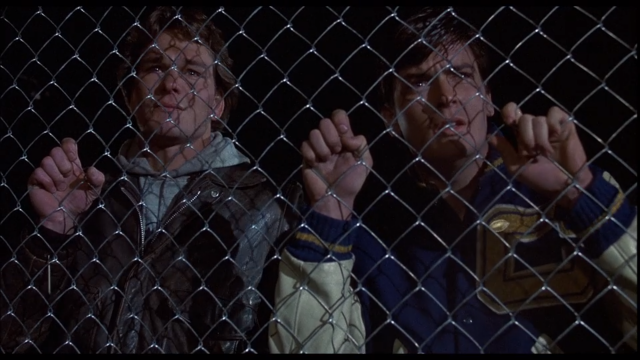Red Dawn is one of the most famous examples of Eighties camp. Camp is one of those categories – like porn – where everyone knows what it is despite everyone also knowing the definition is extremely fuzzy and hard to define. The one thing that tends to be common in definitions of camp is that the work in question is tasteless, exaggerated, and does not conform to reality; from there, definitions split between intentional camp and unintentional camp (with purists firmly preferring works that are unintentionally tasteless) and between the emotional reactions one can have – either ironic appreciation, genuine emotional engagement in spite of the tastelessness, or genuine enjoyment because of the tastelessness. Plan 9 From Outer Space is famous as an example of unintentional camp enjoyed ironically; Batman ’66 is famous as an example of intentional camp enjoyed ironically; Rocky Horror Picture Show is famous as an example of intentional camp enjoyed unironically. The subjectivity of emotional reactions plays a huge part in the competing definitions, because what can be emotionally true to one person can ring false to another – a large part of my reaction to Law & Order is me finding it unintentionally campy, a view I do not expect to be shared by the majority or even a significant minority. Another way of wording camp is that it’s impossible to take seriously, and I’m more likely to take impossible details like magic powers or goofy costumes seriously than I am a lack of emotional truth.
Which brings me back to Red Dawn. I usually see this movie brought up as an example of unintentional camp that nonetheless moves its audience; the usual explanation I’m given is that the basic emotions of teenaged love, brotherhood, and to an extent American patriotism is what moves people, while the ludicrous premise of teenagers fighting armies and emphatic expression of those emotions through dramatic speeches and visible crying are what they find impossible to take seriously. I think that’s actually one of the reasons I can’t buy into it as a work of camp; I take emotions and their expression extremely seriously and if anything, I get annoyed with people who don’t give emotional expression a lot of leeway. I fully believe in where their emotions are coming from, and when you get right down to it, the way these kids express those emotions is the most realistic thing in the movie. I also take the right-wing ideology that drives the movie too seriously to laugh at it – the idea of a land invasion of the USA is ludicrous, of course, especially to the extent of invading small towns, but both the specific xenophobia that motivates the movie’s creativity and the fact that awful people I’ve seen in real life have been motivated by similar views are too repulsive for me. You might as well ask me to find the HP Lovecraft stories with explicit racism campy.


